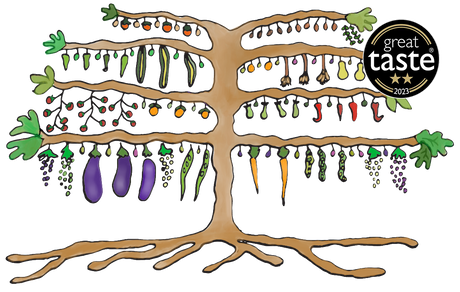I’m grateful to the swallow on the sundial. In the delicate beginnings of another day we wake again to the cacophony of golden orioles feasting on tear-drop figs, accompanied by whistling bee-eaters spiralling above.
Outside the storeroom door I drop cat food into an old frying pan for the two barn felines, and lazily lift my gaze up above the muscat grape vine. The swallow sits near the tip of the angled iron rod protruding from the mottled lime render, soon to cast a shadow and tell us the early hour, plum centre on the forehead of the weathered house.
It sums up Mother’s Garden, the common quest to weigh time and consider the natural waypoints to a fulfilling existence. I tiptoe back into the house to get my camera. The swallow bides and I thank it. Then, just to its right, an oriole alights on the dead branch crown of a crowd of fig leaves. The fat tree has a bald patch like Friar Tuck. Most days I glimpse a flash of gold as the fidgety orioles whirl about, never still for more than a breath. But now I am holding my camera. There is just enough light, just enough time.
Bind weed clouds the log pile, life swamping death, and trumpets its victory through a plethora of white blooms that unfold with the warmth. How stupid the word we have for plants that don’t fit our narrow values. Just a few days ago a typically curious, keen-eyed six year old Bavarian boy, staying with his family in our cottage for a few days, and like all little people hungry for real adventures if given the chance, stopped me on our nature walk to marvel at the yellow flowering of a succulent thistle. The intricacies of things we rarely notice crowd the senses. How raw and rich the world can be to young eyes, uncluttered minds, if time and will can be cherished, nurtured.
The valley steadies its breath, paces itself as the heat of midsummer sucks energy from Englishmen. Hounds and felines flop too and busy ants must make a detour round a lazy tail.
What follows may not be palatable but it is the truth.
Rats come and go. The population is thin most of the time, far thinner than any city, but spikes occasionally when, naturally, there are rich pickings on the fruit trees. These creatures, mostly of the night, take their life in their claws and figs in their teeth. It is impossibly hard for them. They flourish for a few days and those that prey on them circle and close in.
Raptors eye for daylight risk-takers, ring-tailed cats crouch in the dark, and snakes move in. A mostly black western whipsnake (coluber viridiflavus) a 5ft wonder to behold, ignores Maggie to bide in the shade of a drystone wall near the woodpile. It is taking a mid-morning risk, for the birds of prey are partial. The circle of life spins. Ripe, half-eaten figs fall to warm earth, hungers are sated.
Yesterday the sweat was blinding. I was at the hives for nearly two hours in the seamless heat, talking quietly, taking a little honey, repairing frames and delicately transferring one family of 50,000 from one broken hive to another, newly repaired. Only a tiny few lost their patience with me.
Ella was at my side. We finished, gave thanks and wandered away as slowly as we had come, brushing the last remaining bees from the heavy frames in our hands. Joe helped in the farmhouse hall with the spinning, and then Maggie and I filled an assortment of jars with more than 25lbs of chestnut dark, simple goodness that will last us the year as well as afford us the joy of gifting to friends. Always seek raw honey from untreated mixed farms with healthy hedgerows if you can, where the bees have a host of options, a chance to thrive away from mono crops. Honey that has not been heated or processed in any way contains natural vitamins, enzymes, powerful antioxidants and vital natural nutrients.
After our labour scores of bees filled the air close to the barn door where, on a yet to be cleared work bench, Joe and I had been repairing frames and affixing the sheets of wax. As I put tools away and tidied the surplus frames, smiling Ella wandered slowly through the thick air, simply attired for a cooling dip in the pool.
I took myself off up the land, through the eye-height fennel and shin-tickling growth. We have set a fourth hive in the almond grove. No residents yet, but I will put a spun-but-not-spent honey frame in with the new wax sheets as an invitation, a welcome. The bees will come, for sure. Also patiently waiting for signs of their arrival were the iridescent bee-eaters, decorating a pine. Their numbers grow, yet somehow all is in balance. The humming of the honey-makers swells in equal measure.
PS: See our Mother's Garden Facebook page for Maggie’s latest summer recipe. We'd be delighted, too, if you were able to share the news, blogs, recipes and fresh olive oil from Mother's Garden.

0 comments